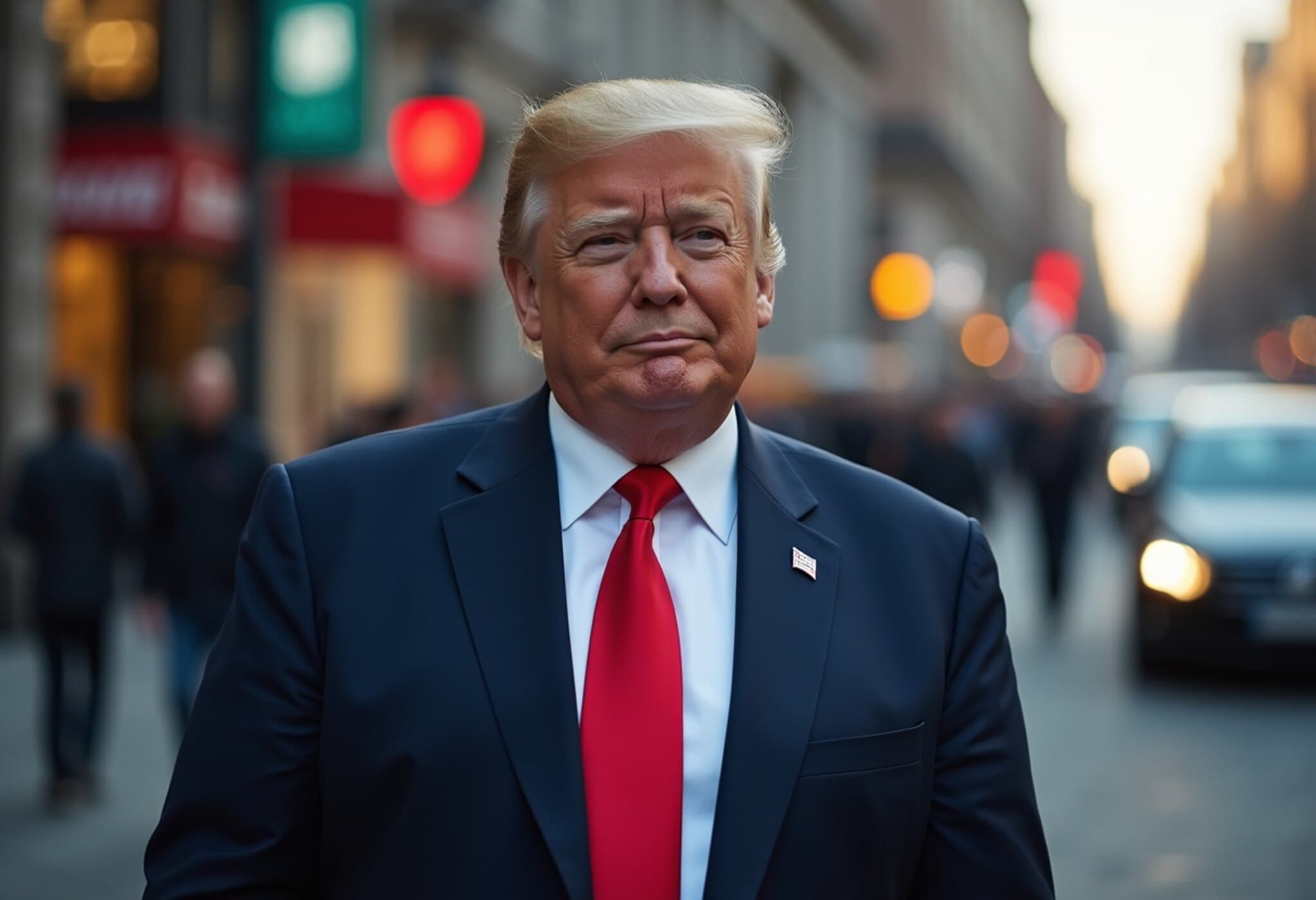Evergrande’s Fall: The End of an Era
China Evergrande Group, once crowned as the titan of China's real estate boom, has officially vanished from the Hong Kong Stock Exchange. After a rollercoaster 15-year journey that started with one of Hong Kong’s most celebrated IPOs, the developer faced delisting on August 25, 2025 — a formal close to a saga marked by staggering debt defaults and broken promises.
At its zenith, Evergrande's market capitalization soared above $50 billion. The company symbolized China's rapid urban growth, underpinning about a third of the nation’s economic activities through land sales and real estate development. Today, its downfall encapsulates the profound struggles weighing heavily on China's property sector—and by extension, its broader economy.
The Lingering Shadow of a Brewing Crisis
Evergrande’s collapse was not an isolated event but a dramatic manifestation of an ongoing structural malaise in China’s real estate market. The crisis traces back to Beijing’s 2020 “three red lines” policy, a series of regulatory measures aiming to limit excessive borrowing by developers. Unlike the swift and catastrophic housing crash witnessed in the U.S. in 2008, China’s real estate slowdown has been a prolonged, carefully managed decline, designed to avoid triggering systemic financial panic.
Yet, the impact on the ground has been real and sharp. New home prices plummeted in 70 major Chinese cities throughout mid-2025, while new construction projects have dropped nearly 20% year-on-year during the first seven months of the year. More worryingly, unsold housing inventories have ballooned, exceeding twice their historical averages. For Chinese families traditionally viewing real estate as a bedrock investment, confidence is eroding rapidly.
Ripple Effects: Beyond Evergrande
Evergrande was not alone in faltering. Property giants like Country Garden and Vanke — once considered financial stalwarts with state affiliations — have also confronted severe distress. Country Garden’s default in 2022 left it entrenched in restructuring complexities, while Vanke surprised investors with an unprecedented annual loss nearing 50 billion yuan.
The slump has stretched throughout China’s real estate ecosystem — impacting construction firms, landscaping services, real estate agencies, and even local governments. Municipalities that heavily depended on land-sale revenues now face budget shortfalls, compounding already fragile economic conditions.
Beijing’s Balancing Act
Confronted with these systemic tensions, Beijing’s strategy has been judicious and measured. Policymakers have shied away from large-scale bailouts that could revive hazardous speculation but have eagerly intervened to prevent market freefall. Measures include easing purchase restrictions, lowering mortgage rates, and extending loans to help complete unfinished developments.
Local governments, meanwhile, have experimented with stimulus-like tactics such as easing suburban housing purchase restrictions, but so far, these efforts have only marginally stabilized the market—and chiefly in first-tier cities. In many mid-tier urban areas, sellers still struggle to find buyers willing to meet previous price expectations.
The Human Toll: Families Feeling the Strain
The profound economic shifts aren’t just numbers on spreadsheets. Millions of Chinese households who invested in property during boom years now wrestle with depreciating assets. Mounting mortgage delinquencies have reached their highest levels in four years, forcing many to sell homes at significant losses—a bitter reality that threatens middle-class financial security.
This vulnerability disrupts social stability, as real estate once served both as a personal wealth sanctuary and a reliable retirement resource. Stories from cities like Hefei, where sellers face deep losses, highlight the emotional and financial strain on everyday families grappling with a volatile market.
Looking Ahead: A Long Road to Economic Recalibration
China’s property sector, historically the cornerstone of its economic miracle—accounting for nearly 30% of GDP—now risks becoming a persistent drag on growth and confidence. Without a clear alternative economic growth model, Beijing faces the daunting task of managing a gradual property market transition while preventing further erosion of consumer trust and local government revenues.
Evergrande’s delisting is more than the fall of a single company; it’s a powerful symbol of the ongoing reckoning within China’s real estate arena. Policymakers, investors, and citizens alike are watching closely, as the country navigates this complex transformation amidst global economic uncertainties.
Expert Insight
From a policy perspective, the challenge resembles a high-wire act: unleashing enough support to stabilize the sector without reigniting the speculative excesses that triggered the crisis. For U.S. and global markets, China’s property slowdown underscores the interconnectedness of modern economies, where a localized crisis can ripple globally through supply chains, commodity markets, and financial systems.
Underreported narratives
- Local Government Finances: How shrinking land sales are forcing innovative fiscal solutions.
- Middle-Class Impact: The erosion of real estate as a wealth anchor alters consumption and social mobility.
- Environmental Angle: The surge of unsold housing also raises questions about sustainable urban planning and resource use.
Critical Questions
- Can Beijing foster new growth engines to pivot away from property-driven economic growth?
- What safeguards will ensure middle-class families don’t bear disproportionate financial burdens?
- How will this crisis shape China’s global economic influence in the coming decade?
Editor’s Note
The delisting of Evergrande marks a watershed moment in China’s ongoing property market crisis—but it is far from an endpoint. The country's economic future hinges on whether policymakers can navigate this protracted downturn without triggering broader societal and financial instability. As citizens face the repercussions, questions about sustainable development, economic diversification, and social equity come sharply into focus. This story is still unfolding, and its outcomes will have profound implications for locals and the global economy alike.











